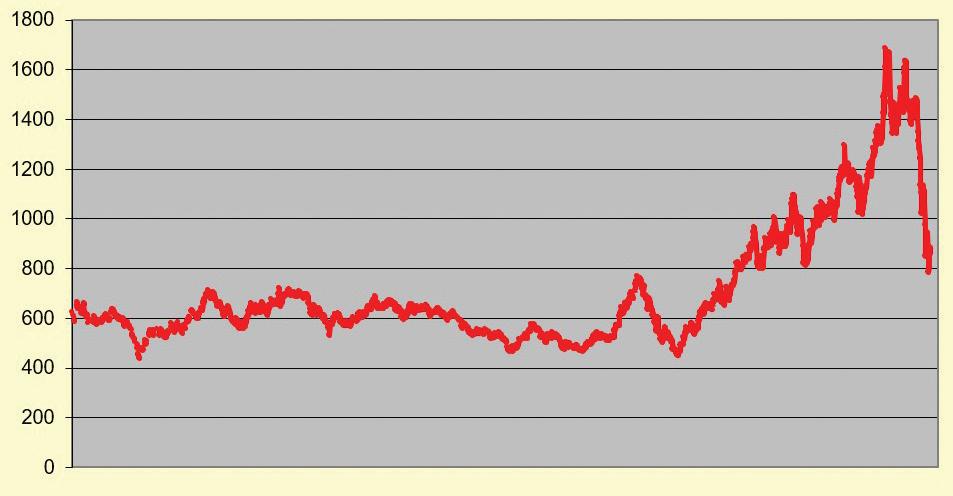NEWS
Indonesia removes export tax to boost trade Leading global palm oil producer Indonesian has removed the export tax for all palm oil products for a limited period between 15 July-31 August in a bid to boost exports amid an excess of domestic supply, AgriCensus reported on 18 July. The tax would be reinstated from 1 September when a progressive rate structure would apply depending on the crude palm oil (CPO) reference price, AgriCensus quoted from an official document published on 16 July by the country’s finance ministry. The maximum export levy for CPO was previously set at US$200/tonne from 14 June to 31 July, if the CPO reference price exceeded US$1,500/tonne, accord-
ing to the report, with Indonesia planning to raise it to US$240/tonne from 1 August. However, a combination of rising domestic stocks, slow exports and pressure from farmers facing an oversupply of palm fruit had caused the government to backtrack on its earlier plans and consider new measures to raise export volumes. The rise in stocks was mainly due to a three-week palm oil export ban which Indonesia introduced on 28 April in a bid to control high prices of local cooking oil, the report said. Following the lifting of the ban on 23 May, a range of measures had been introduced to boost trade including a reduction in export taxes, the launch of a
special export acceleration programme and a rise in export quotas, AgriCensus wrote. However, figures from the Indonesian Palm Oil Association (Gapki) showed that stock levels remained at 7.23M tonnes at the end of May. High stocks had also led to palm oil mills reducing purchases of fresh fruit bunches, leading to farmer protests. Meanwhile, palm oil stocks in second largest producer Malaysia reached their highest level in seven months in June as exports fell, Reuters reported on 5 July. Stockpiles were forecast to rise 12.3% from May to 1.71M tonnes in June, according to estimates of eight traders and analysts polled by the news agency.
US food giant the Kellogg Company has announced plans to split into three independent companies in a bid to streamline the company and focus on its snack business. As part of the move by the maker of Kellogg’s cornflakes, Rice Krispies, Pringles and other well-known food brands, Kellogg’s will separate its North American cereal and plant-based food businesses, the company said on 21 June. The restructuring would result in the creation of a global snack business, with estimated net sales of about US$11.4bn, that would also include international breakfast cereal and noodles brands and Kellogg's North American frozen breakfast division. The names of the three firms had not been confirmed but had been temporarily named
Photo: Adobe Stock
Kellogg's to split into three to focus on snacks
Kellogg's is splitting into three to focus on its global snack business
Global Snacking Co, North America Cereal Co and Plant Co. North America Cereal Co, with estimated net sales of about US$2.4bn, would be a cereal company in the USA, Canada and the Caribbean, while Plant Co, with about
US$340M in net sales, would be a plant-based food company, based around the MorningStar Farms brand. “These businesses all have significant standalone potential, and an enhanced focus will enable them to better direct their resources toward
their distinct strategic priorities,” Kellogg's chairman and CEO Steve Cahillane said. Kellogg’s said it expected the new snack food company to be a higher growth business than the current one. The formation of the North America Cereal Co and Plant Co was due for completion by the end of next year, the company said, although the former could take place first. Kellogg’s said North America Cereal Co and Plant Co would both retain their headquarters in Battle Creek, Michigan, while Global Snacking Co would keep its dual headquarters in Battle Creek and Chicago, Illinois. The company’s three international headquarters in Asia, Middle East and Africa, Europe and Latin America, would remain in their current locations.
China edible oil production forecast revised downward The Chinese government has reduced its forecast for edible oil production for the current marketing year due to a reduction in oilseed imports, AgriCensus quoted from the monthly update to China’s Agriculture Supply and Demand Estimates (Casde). China is now expected to produce 28M tonnes of edible oil during the 2021/22 season, mainly due to a fall in oilseed imports leading to a decrease in edible vegetable oil production,” the 12 July report said. However, an increase in domes6 OFI – JULY/AUGUST 2022
General News.indd 3
tic rapeseed production would counter the decline in edible oil output. Chinese government analysts have maintained an unchanged estimate for edible oil imports of 7.43M tonnes in 2021/22. Of the total, imports for palm oil and soyabean oil were cut by 300,000 tonnes and 170,000 tonnes from their previous outlooks to 3.7M tonnes and 630,000 tonnes, respectively. Consumption of edible oil was expected to be stable at 36.34M tonnes.
Accordingly, the year-end balance between supply and demand for 2021/22 dropped 150,000 tonnes from the previous estimates to minus 1.18M tonnes. China’s Ministry of Agriculture and Rural Affairs kept its forecasts for soyabean imports and demand for the new crop year at 95.2M tonnes and 19.48M tonnes, respectively. Soyabean consumption for 2022/23 remained at 112.87M tonnes, leaving the year-end balance between supply and demand unchanged at 1.66M tonnes. www.ofimagazine.com
25/07/2022 13:13:25














